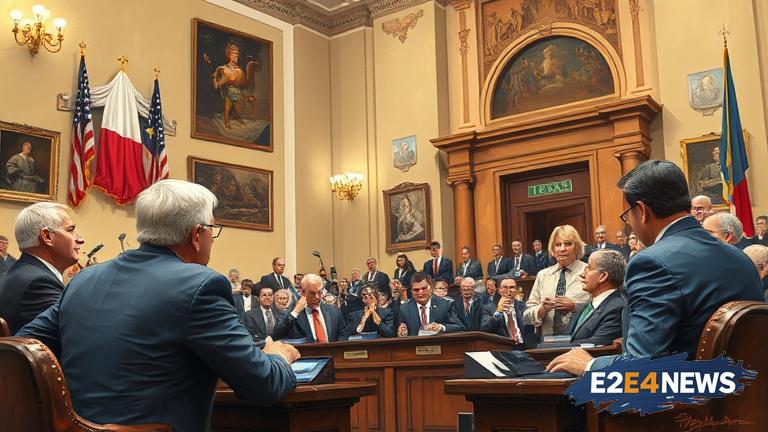The Texas special session has commenced, and one of the most contentious issues on the table is redistricting. Lawmakers are grappling with the task of redrawing the state’s congressional and legislative districts, a process that is required every 10 years following the census. The debate is expected to be intense, with Democrats and Republicans having fundamentally different visions for the new district maps. The Republican-led legislature is pushing for maps that would likely give their party an advantage in future elections, while Democrats are advocating for maps that would be more representative of the state’s diverse population. The redistricting process is complex and involves a range of factors, including population growth, demographic changes, and the need to ensure that districts are compact and contiguous. Texas has experienced significant population growth over the past decade, with many new residents moving to the state’s urban areas. This growth has led to a shift in the state’s demographic makeup, with the Hispanic population growing particularly rapidly. As a result, there is a growing demand for district maps that reflect the state’s increasing diversity. However, the Republican-led legislature has proposed maps that would likely reduce the number of minority-majority districts, a move that has been met with fierce opposition from Democrats and civil rights groups. The debate over redistricting is not just about politics, but also about the fundamental principles of democracy and representation. Many argue that the current maps are gerrymandered, with districts being drawn in a way that favors one party over the other. The use of gerrymandering has been widely criticized, as it can lead to a lack of competitive elections and a disconnect between elected officials and their constituents. In addition to the debate over district maps, the special session is also expected to address a range of other issues, including voting rights and election security. The outcome of the redistricting debate will have significant implications for the future of Texas politics, and could potentially impact the balance of power in the state legislature and in Congress. As the debate continues, it is likely that we will see intense negotiations and potentially even lawsuits, as different groups and individuals seek to shape the outcome. The redistricting process is a complex and contentious one, but it is also a critical component of our democratic system, and it is essential that lawmakers get it right. The special session is expected to last for several weeks, and it is likely that the redistricting debate will be a major focus of attention throughout. Ultimately, the outcome of the debate will depend on a range of factors, including the level of bipartisan cooperation and the willingness of lawmakers to put the interests of their constituents above their own partisan interests. The redistricting debate is a critical moment in Texas politics, and one that will have far-reaching implications for the future of the state.
